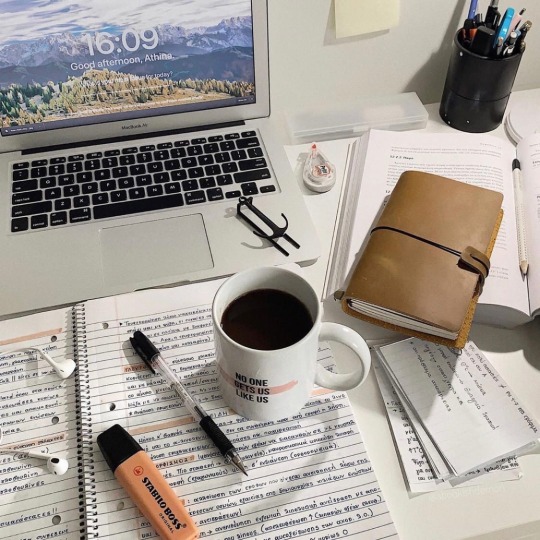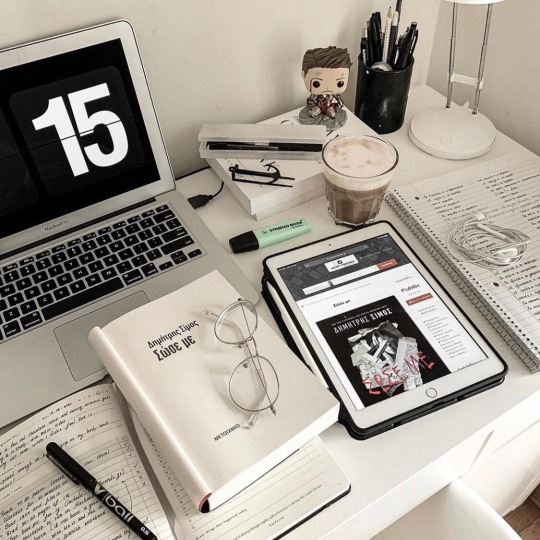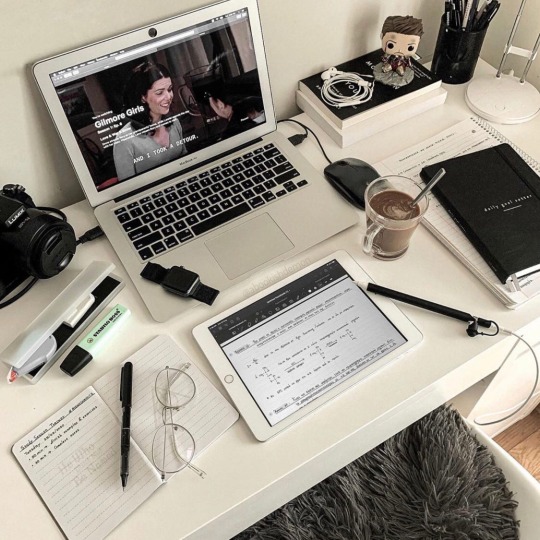Text
Beginner to intermediate (A0 to B2) study tips

Hi! Here is a masterpost of my self-study tips. I'm going to copy one of my posts onto here.
Some general rules
Make language learning a habit.
Be consistent.
Have a plan and clear goals. Know which skills you want to focus on and how you want to study.
Make sure you have a solid foundation in vocabulary and grammar.
Store all of your notes in one place.
Use a variety of resources but not too many. One or two per skill is enough.
Focus more time on practicing than on learning vocabulary and grammar.
Get corrections. HiNative is good for this. Journaly is also good for writing. You could also get a study buddy.
Have fun!
How to start learning a language (A0 to A1)
Learn the alphabet! You can do this using flashcards. Make sure you practice writing the words and memorise the stroke order. For languages like Japanese or Mandarin Chinese that have characters, learn some of the most basic characters and their stroke orders.
Immediately start working on your pronunciation! Watch some pronunciation guide videos, and then start speaking and shadowing. Make sure a video has subtitles in the language, and try to say everything being said in the video (make sure it is beginner friendly) right after it is said.
Use an app! Duolingo, Lingodeer, HelloChinese and Memrise are just a couple of incredible ones. I highly recommend them.
Complete an online course or a beginners textbook! There are loads available for free online. Hell, there are loads available on this website. Make sure the approach is vocabulary based, not grammar based, as that will be more useful for you. Also, make sure that audio is available to you.
Start texting natives on apps like Tandem or HelloTalk! This gets very good results, as you can learn new vocabulary being texted to you, along with being able to look up new common greetings and phrases while you are texting.
Memorise basic vocabulary and grammar! Learn the basics of present tense, gender, adjective agreement, word order and some structures, along with a few vocabulary lists of necessary vocabulary (common greetings, animals, colors, family etc.). For grammar, I’d recommend just using a workbook, and for vocabulary, flashcards are very good.
Immerse! Try to listen to and read the language in your dead time, so you can get used to it. Turn the language of your phone to your target language. Read tweets in the language. Watch YouTube videos about fun subjects that you like. If the language you are learning is particularly difficult (like Japanese and Chinese), then try and read and listen to fun learners exercises. Generally just try to get used to the sounds of your target language, and reading the alphabet or familiar characters.
How to go from beginner to intermediate (A1 to B1)
Use a textbook or online course! Don’t skimp: get a dense one. Make sure that you don’t use a grammar based one over a vocabulary/practice based one. If you use a textbook, then make sure that it has audio with it. Also, make sure to learn all the vocabulary on the course, and also do all the exercises.
Work through a grammar book! You can do the exercises, turn it into a cheat sheet or something like that. Try focusing more on using the rule/structure than writing notes.
Expand your basic vocabulary! Try making a list of topics that you definitely need to be able to have a basic conversation with a native. The GCSE specification is a good guide for this. Add to that vocabulary about subjects that interest you (e.g. science, language learning etc.). You can learn this using a bunch of methods, but my personal favourite is flashcards.
Find a speaking buddy, and speak! This is simple, but it works. Try to find somebody to speak with and have basic conversations in your target language with. Do this however often you would like. You can also try having conversations with yourself without looking at your notes. Make sure to look up words that you don’t know but want to use. Also, you can try memorising set phrases and vocabulary around certain topics, and talk about them. You might also use a script, if you want. You can find a buddy on Tandem or HelloTalk, or maybe even HiLokal.
Immerse. Listen to music, change your phone's language to the language, follow people on social media and watch YouTube videos.
Read and watch content for native children. It is usually at the perfect level for beginners. I’m planning on watching a lot of Peppa Pig in Spanish to expand my vocabulary. It is difficult enough to strengthen your skills and simple enough for you to understand it. You’ll also learn a lot of widely used vocabulary.
Shadow native material. This is honestly the best way to practice your pronunciation. Get ahold of a video (Easy Languages is amazing for this!) and repeat what is said after it is said. Copy the intonation and imitate the sounds being made.
Text natives on Tandem or HelloTalk. This is just generally quite a useful way to practice your writing. Look up words that you do not know and write them down to memorise later. You can memorise set phrases to use in conversation, and also practice reading what they text you too. Also, it is just a nice way to meet new friends.
Engage with intermediate content in the language. I know it is difficult, but it will get you used to more complex language. Find intermediate podcasts with transcripts, and read along with what is said.
Read and listen to native material related to your interests! Personally, I like language learning, so I watch a lot of videos on that. Go for something where they do not use a lot of slang or jargon, and speak at a relatively normal speed. Videos and articles that explain concepts or offer advice are usually good for this.
How to go from intermediate to conversational (B1 to B2)
Listen to intermediate level podcasts and videos. There are loads of podcasts and youtube channels that offer intermediate material for learners, like InnerFrench, a piece of French, iyagi and dreaming spanish. Innovative languages also offer intermediate level podcasts. You should be able to understand a lot of it, though there will definitely be quite a bit that you don’t. Make sure to look at transcripts/subtitles, and note down words you don’t understand.
Shadow native material. I personally believe Easy Languages is the absolute best for this.
Watch TV shows and films. Make sure that they don’t use any jargon or time-period specific language. Choose something like a romance or coming of drama, that has common vocabulary. Don’t just watch an episode once either. Keep on repeating it until you can understand enough of it to get what is going on.
Keep a journal in your target language. Try and write about a range of subjects. Also, get corrections.
Speak. What I have advised earlier is applicable here. Also, learn how to talk around words when you don't know them.
Work through a grammar book. Do practice questions and make your own example sentences.
Read articles and books about subjects that interest you.
Read fanfiction in your target language.
Watch videos and the news in your target language.
Try writing short stories and essays. You can use vocabulary you learn from books here! Try memorising set phrases. Choose a topic/story that you're passionate about.
Ways to learn about culture, history and linguistics
Research dialects! Look into how languages change depending on the area, and how they adapt to the different needs of different cultures.
Cook popular recipes!
Subscribe to popular youtubers, magazines and newspapers.
Research how religion affects the countries where your target language is spoken.
Read books on the linguistics and history of your target language.
Listen to podcasts in the language.
Read classic and influential literature. You can use a translation if you aren't at that level.
Read wikipedia pages about topics that interest you.
Ask native speakers questions.
Watch the most popular TV channels in countries where your target language is spoken.
Watch films, documentaries and TV shows. This can give you a taste of the culture AND the language.
Subscribe to YouTube channels by immigrants who have moved to countries where your target language is spoken (or vice versa). This provides a unique perspective, and can be helpful for learning about some of the bigger cultural nuances.
Research famous art and artists that spoke your target language. I really like Stromae (a french artist), so my fangirl habits have led to me making some pretty interesting discoveries about French music and slang.
And that’s pretty much it! I haven’t reached the advanced stage in any of my languages, but when I do, I’ll write a post on overcoming the intermediate plateau. I hope this was helpful. Thanks for reading my post!
868 notes
·
View notes
Text


Made a bookmark out of the ticket we bought during our Japan 2016 Trip. Missing 🇯🇵
53 notes
·
View notes
Note
what are some of ur fav ted-ed vids?
i’m gonna answer with more channels than just ted-ed bc honestly i love this sort of stuff, it’s great to watch while cooking or eating or doing household chores! hope y’all enjoy watching these
YOUTUBE MASTERPOST: educational videos
ted-ed/ted talks
the world’s most mysterious book
history vs. cleopatra
the neuroscience of imagination
rosalind franklin: dna’s unsung hero
who am i? (feat. theseus’s ship problem)
playlist of riddles
mary’s room: a thought experiment
the art of being yourself
planting seeds for happiness, the danish way
yuval noah harari on why humans run the world
crash course
perspectives on death (for someone who’s deeply terrified of dying this was super soothing)
actually watch all of the crash course philosophy playlist you’re welcome
crash course world history is cool too although i like overly sarcastic productions’ videos better on this topic
overly sarcastic productions
storytelling tropes playlist!
strong female characters
mary sues
realism
mythology playlist!
miscellaneous myths: atalanta
miscellaneous myths: fionn mac cumhaill
classics summarized playlist!
dante’s inferno + sequels
paradise lost
seriously if you’re studying any classic book ever they probably talked about it
modern classics too
world history playlist!!
alcibiades (what a legend)
historical models: double world wars
historical models: revolutions
xidnaf
are languages getting simpler?
how nazis stole the word “aryan”
proto-world and the origins of language
proto-indo-european culture
the linguistics of afro-american vernacular english
nativelang
does time work differently in different languages?
tonal languages
how long can a language last?
the hardest language to spell
taboos: the tribe that cursed too much
coffee break
how to ALWAYS win an argument
why the stories we tell ourselves matter
vsauce
mindfield: the greater good
when will we run out of names?
how people disappear
why do we kiss?
is your red the same as my red?
2K notes
·
View notes
Photo


28 January 2019 | Today is technically the first day of the spring term and we technically have a snow day, but the beautiful thing about working from home is that the weather is no impediment to a cozy day in faithfully chipping away at some lecture and reading notes. It’s hard to capture the extent of the snowfall, but suffice it to say that Michigan in its entirety is essentially closed.
716 notes
·
View notes
Text
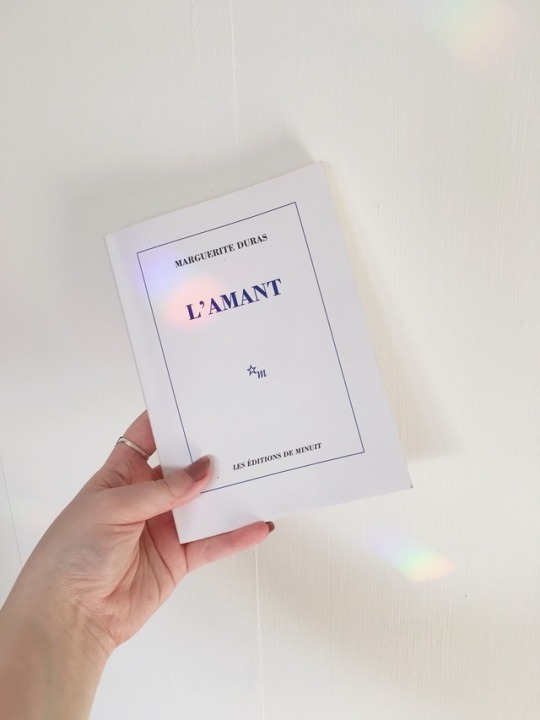
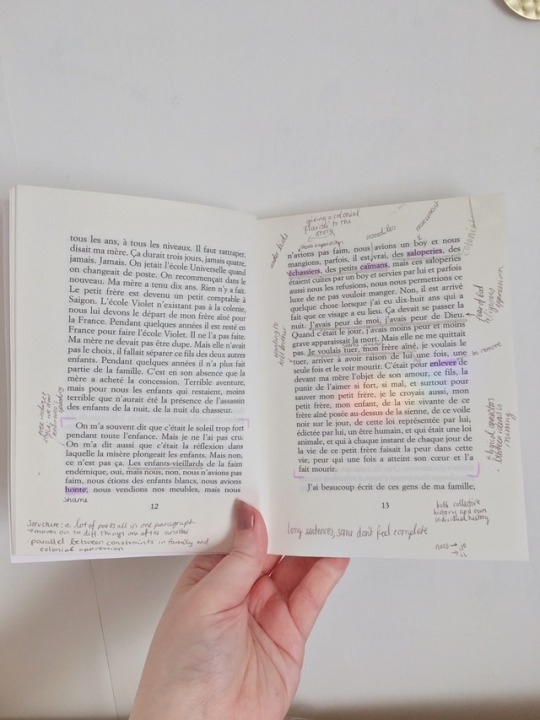
reading some of my old french lit books from first year✨ instagram
2K notes
·
View notes
Text




woah - today sorta flew by! I’ve applied for the accelerated program ✨ which would allow me to graduate a semester early! 🙏🏻 keep your fingers crossed for me ❤️
1K notes
·
View notes
Text


30.01.19 || Caramel macchiato + civil law + beautiful sunset.
20 notes
·
View notes
Photo


19.03.2017 // I usually don’t work in bed buy today has been my day to work on all the assigments I find painful so here I am… 📖
818 notes
·
View notes
Photo


[11.13.18] 78/100 days of productivity
Reading Plato’s Phaedo and testing out new purple ink in my fountain pen. Honestly, this week is dragging by and I’m having a hard time being productive… I can’t wait until break next week!
Background: @emmastudies
1K notes
·
View notes
Text

- notes on normal distribution
.
Just finished dance rehearsal for my graduation showcase! I cant wait for the weekend to get some work and studying in!
.
Also, THANK YOU FOR 2K FOLLOWERS!
.
.
IG: @studybroe
482 notes
·
View notes
Photo
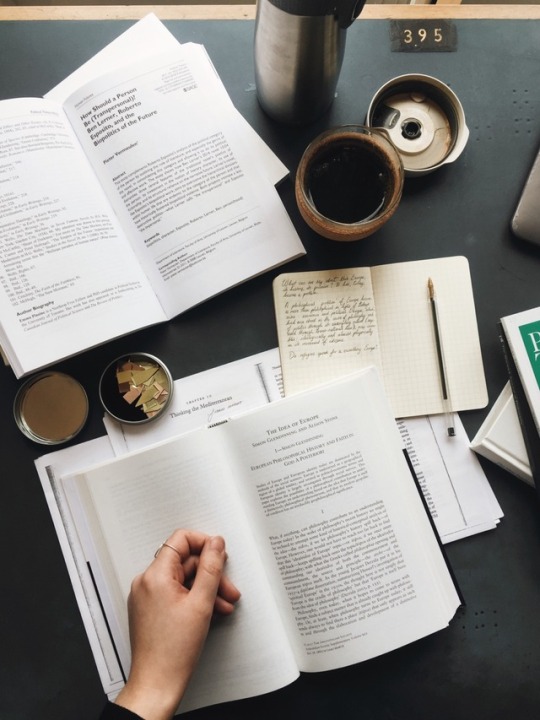
So I’m supposed to be reading postmodern literary theorists, but as always I keep being drawn back to problematising Europe
16K notes
·
View notes
Photo



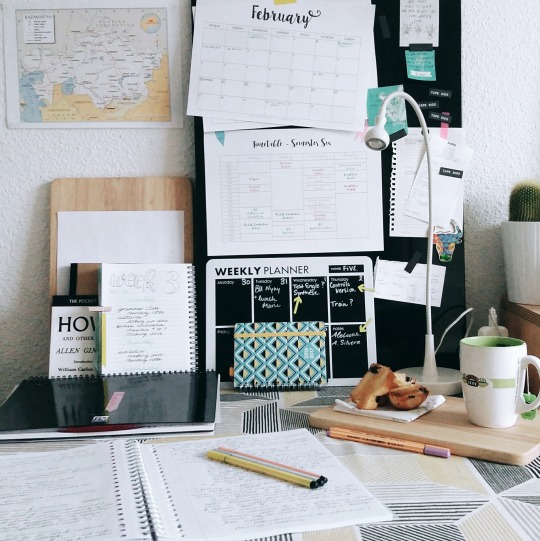
monday to thursday - semester six, week three
my week can be summed up as productive, but only for classes i actually like. tried and still haven’t finished that damn report, but i consoled myself in reading woolf’s to the lighthouse and looking more into my lit classes, and the linguistics one. next week’s load of work is supposed to be lighter, thanks gosh because i need this family time in the countryside i’m suppose to have as of tomorrow.
41K notes
·
View notes

